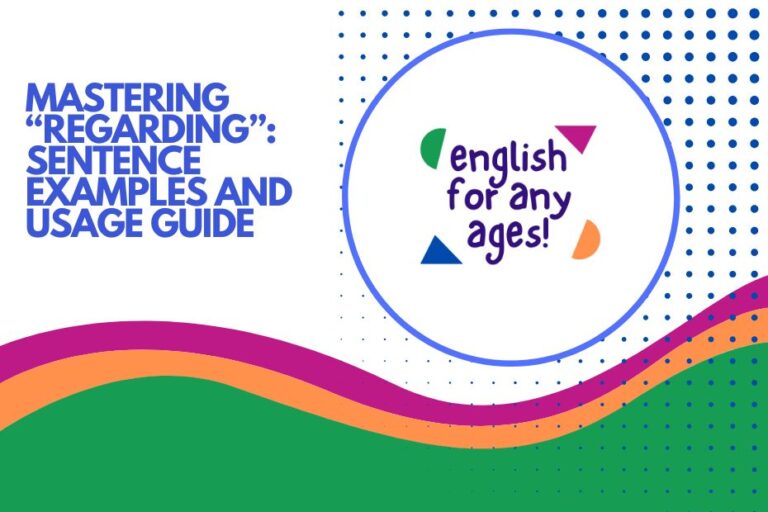How to Use “Ripping” in a Sentence: A Comprehensive Guide
The word “ripping” is a versatile term in English, capable of conveying a variety of meanings depending on the context. From describing physical tearing to expressing excitement or criticism, “ripping” can be found in numerous situations.
Understanding its different uses is crucial for effective communication. This article provides a comprehensive guide to using “ripping” correctly in sentences, covering its various forms, meanings, and applications.
This guide will benefit English language learners, writers, and anyone looking to improve their understanding and usage of this dynamic word.
Table of Contents
- Introduction
- Definition of “Ripping”
- Structural Breakdown
- Types and Categories of “Ripping”
- Examples of “Ripping” in Sentences
- Usage Rules for “Ripping”
- Common Mistakes When Using “Ripping”
- Practice Exercises
- Advanced Topics
- Frequently Asked Questions (FAQ)
- Conclusion
Definition of “Ripping”
“Ripping” is the present participle and gerund form of the verb “rip.” The verb “rip” generally means to tear something quickly or violently. However, “ripping” has evolved to encompass several meanings beyond the literal act of tearing.
It can describe speed, intensity, or even serve as slang for something excellent or harshly critical. Understanding these different facets of “ripping” is essential for accurate interpretation and usage.
In its most basic sense, “ripping” refers to the act of tearing something forcefully. This could be paper, fabric, or any other material.
In a figurative sense, “ripping” can mean to criticize something severely or to move with great speed. The slang usage of “ripping” often indicates that something is fantastic or excellent, particularly in contexts like surfing or snowboarding.
Structural Breakdown
The word “ripping” primarily functions as a verb form (present participle and gerund), but it can also act as an adjective in certain contexts. Here’s a breakdown:
- Verb Form: As a present participle, “ripping” is used in continuous verb tenses (e.g., “The wind is ripping through the trees”). As a gerund, it functions as a noun (e.g., “Ripping the paper was a satisfying release”).
- Adjective: “Ripping” can modify nouns to describe something that is tearing or has a tearing quality (e.g., “He noticed the ripping sound of the canvas”).
The structural role of “ripping” within a sentence depends on its function. As a verb, it follows auxiliary verbs like “is,” “are,” “was,” or “were.” As a gerund, it can act as the subject or object of a sentence.
As an adjective, it precedes the noun it modifies.
Types and Categories of “Ripping”
“Ripping” as Physical Tearing
This is the most literal and common usage of “ripping.” It describes the action of tearing something apart by force. This usage is often associated with physical objects and tangible actions.
When used in this context, “ripping” emphasizes the forceful and often destructive nature of the tearing action. It conveys a sense of immediacy and impact, highlighting the physical consequences of the tearing.
“Ripping” in Figurative Language
“Ripping” can be used figuratively to describe something moving quickly or forcefully, or to denote severe criticism. This usage extends beyond the literal act of tearing.
In figurative language, “ripping” adds intensity and vividness to descriptions. It can create a sense of speed, power, or harshness, depending on the context.
For example, “ripping through the water” suggests rapid and powerful movement, while “ripping into someone” implies sharp and critical remarks.
“Ripping” as Slang
In slang, particularly in surfing and snowboarding culture, “ripping” means performing exceptionally well or doing something in an impressive manner. It’s a positive term.
The slang usage of “ripping” is informal and expressive. It conveys admiration and excitement, often used to praise someone’s skill or performance.
This usage is common in casual conversation and online forums within specific subcultures.
Examples of “Ripping” in Sentences
Physical Tearing Examples
The following table provides examples of “ripping” used in the context of physical tearing. Each example illustrates how “ripping” describes the action of tearing something apart by force.
| Sentence | Explanation |
|---|---|
| The toddler was ripping pages out of the book. | Describes a child tearing pages from a book. |
| The wind was ripping the sails of the boat. | Illustrates the wind tearing the boat’s sails. |
| He was ripping open the package with excitement. | Shows someone eagerly tearing open a package. |
| She heard the ripping sound of fabric as she tripped. | Depicts the sound of fabric tearing during a fall. |
| The dog was ripping the toy apart in seconds. | Describes a dog quickly tearing a toy to pieces. |
| He accidentally started ripping the wallpaper while trying to peel it. | Shows the unintended tearing of wallpaper. |
| The old flag was ripping in the wind. | Illustrates a flag tearing due to wind exposure. |
| She was ripping up old photographs, feeling angry. | Depicts someone tearing up photographs in anger. |
| The machine was ripping through the metal sheets. | Describes a machine forcefully tearing through metal. |
| He felt the ripping of his muscles during the heavy lift. | Shows the sensation of muscle tearing during exercise. |
| The storm was ripping the roof off the house. | Illustrates a storm tearing off the roof. |
| The thief was ripping the painting from the wall. | Depicts a thief tearing a painting from the wall. |
| She was ripping the letter into tiny pieces. | Shows someone tearing a letter into small pieces. |
| The construction crew was ripping down the old building. | Describes the demolition of an old building. |
| He was ripping the tape off the box. | Shows someone tearing tape off a box. |
| The earthquake was ripping the earth apart. | Illustrates an earthquake tearing the earth. |
| She was ripping the weeds out of the garden. | Depicts someone tearing weeds from the garden. |
| The bear was ripping open the tent in search of food. | Shows a bear tearing open a tent. |
| He was ripping the labels off the bottles. | Describes someone tearing labels off bottles. |
| The waves were ripping at the shoreline. | Illustrates waves tearing at the shoreline. |
| The saw was ripping through the wood. | Describes a saw forcefully cutting through wood. |
| She was ripping the seams of the dress. | Shows someone tearing the seams of a dress. |
| The explosion was ripping apart the building. | Illustrates an explosion tearing apart a building. |
Figurative Language Examples
The following table provides examples of “ripping” used in figurative language. These examples illustrate how “ripping” can describe speed, intensity, or criticism.
| Sentence | Explanation |
|---|---|
| The car was ripping down the highway. | Describes a car moving very quickly. |
| The band was ripping through their set list. | Illustrates a band playing their songs with energy. |
| The critics were ripping the movie apart. | Shows critics severely criticizing the movie. |
| He was ripping into his opponent during the debate. | Depicts someone harshly criticizing their opponent. |
| The storm was ripping through the town. | Describes a storm moving forcefully through the town. |
| The news report was ripping holes in the politician’s reputation. | Shows the news damaging the politician’s reputation. |
| She was ripping through her work to meet the deadline. | Illustrates someone working quickly to finish a task. |
| The company was ripping off its customers with hidden fees. | Describes a company exploiting its customers. |
| He felt like his heart was ripping in two. | Shows the feeling of intense emotional pain. |
| The team was ripping apart the competition. | Illustrates a team easily defeating their opponents. |
| The comedian was ripping on the audience. | Depicts a comedian making jokes at the audience’s expense. |
| The gossip was ripping through the office. | Shows gossip spreading quickly through the office. |
| His argument was ripping through their defenses. | Illustrates an argument effectively breaking down resistance. |
| The runner was ripping past the other competitors. | Describes a runner quickly overtaking others. |
| The accusations were ripping families apart. | Shows accusations causing significant family conflict. |
| The project was ripping through the budget. | Illustrates a project quickly consuming its budget. |
| Her performance was ripping up the stage. | Depicts an outstanding and energetic performance. |
| The lawyer was ripping apart the witness’s testimony. | Shows a lawyer effectively discrediting a witness. |
| The disease was ripping through the population. | Illustrates a disease spreading rapidly. |
| The memories were ripping through his mind. | Describes intense and overwhelming memories. |
| The engine was ripping with power. | Shows an engine producing a lot of power. |
| The athlete was ripping through the training regimen. | Illustrates an athlete completing training with great effort and speed. |
Slang Usage Examples
The following table provides examples of “ripping” used as slang. These examples illustrate its usage in surfing, snowboarding, and similar contexts to describe excellent performance.
| Sentence | Explanation |
|---|---|
| “Dude, you were ripping out there today!” | Expresses admiration for someone’s surfing skills. |
| “She’s totally ripping on that snowboard.” | Shows appreciation for someone’s snowboarding abilities. |
| “He’s ripping it up at the skate park.” | Illustrates someone performing exceptionally well at skateboarding. |
| “Did you see him ripping that wave?” | Asks if someone saw someone surfing impressively. |
| “She’s always ripping, no matter the conditions.” | Describes someone who consistently performs well. |
| “The pros were really ripping during the competition.” | Shows professionals performing exceptionally well. |
| “He’s been ripping since he was a kid.” | Describes someone who has been skilled for a long time. |
| “That new snowboarder is already ripping!” | Expresses surprise and admiration for a new snowboarder’s skills. |
| “I wish I could be ripping like them.” | Expresses a desire to perform as well as others. |
| “They were ripping so hard, the crowd went wild.” | Shows the crowd’s excitement over impressive performances. |
| “The surfers were ripping up the waves this morning.” | Describes surfers performing exceptionally well on the waves. |
| “He’s ripping on his new skateboard.” | Shows appreciation for someone’s skateboarding abilities with a new board. |
| “She’s ripping through the powder on the slopes.” | Illustrates someone snowboarding exceptionally well in fresh snow. |
| “The freestyle skiers were ripping during the event.” | Describes freestyle skiers performing exceptionally well in the competition. |
| “He’s been ripping since he got that new board.” | Shows someone’s performance has improved with new equipment. |
| “They were ripping it up at the surf competition.” | Illustrates exceptional surfing performance at a competition. |
| “She’s always ripping, making it look effortless.” | Describes someone who consistently performs well with ease. |
| “He’s ripping on his mountain bike.” | Shows appreciation for someone’s mountain biking abilities. |
| “They were ripping through the halfpipe with style.” | Illustrates impressive snowboarding performance in a halfpipe. |
| “She’s ripping the trails on her new bike.” | Describes someone mountain biking exceptionally well on the trails. |
Usage Rules for “Ripping”
Using “ripping” correctly involves understanding its context and intended meaning. Here are some usage rules:
- Physical Tearing: Use “ripping” to describe the act of tearing something forcefully. Ensure the sentence includes a subject and object that are capable of being torn.
- Figurative Language: Use “ripping” to describe speed, intensity, or criticism. Be mindful of the connotation you wish to convey, as “ripping” can imply both positive and negative qualities.
- Slang: Use “ripping” in informal contexts, particularly when discussing surfing, snowboarding, or similar activities. This usage is generally positive and expresses admiration.
Consider the audience and the overall tone of your communication when using “ripping.” In formal settings, it’s best to avoid slang usage. Always ensure the context makes the meaning clear to avoid confusion.
Common Mistakes When Using “Ripping”
Here are some common mistakes to avoid when using “ripping”:
| Incorrect | Correct | Explanation |
|---|---|---|
| “The food was ripping.” | “The food was delicious.” | Using “ripping” to describe food quality is generally incorrect unless used ironically. |
| “He ripping the paper.” | “He is ripping the paper.” | Missing the auxiliary verb when using “ripping” as a present participle. |
| “Ripping is good for you.” | “Exercising is good for you.” | Using “ripping” out of context can lead to confusion. Consider the intended meaning. |
| “She was ripping nicely.” | “She was surfing well.” | Using “ripping” in a grammatically correct but semantically awkward way. |
Pay attention to the tense and form of the verb. Ensure that you use the correct auxiliary verbs when using “ripping” in continuous tenses.
Avoid using “ripping” in formal contexts where slang is inappropriate.
Practice Exercises
Complete the following sentences using the correct form of “rip” or “ripping.”
- The wind __________ through the trees.
- He was __________ the letter into pieces.
- She is known for __________ on the snowboard.
- The critics were __________ apart the new play.
- The team was __________ through the competition.
- The machine is __________ through the metal.
- He felt the fabric __________ as he moved.
- The storm was __________ through the city.
- She’s been __________ since she learned to surf.
- They were __________ off the customers with hidden fees.
Answer Key:
- ripping
- ripping
- ripping
- ripping
- ripping
- ripping
- rip
- ripping
- ripping
- ripping
More Practice: Rewrite the following sentences using “ripping” in a different context.
- The car sped down the road.
- The band played their music with energy.
- The comedian made fun of the audience.
- The news damaged the politician’s reputation.
- He tore the paper into pieces.
- The snowboarder performed exceptionally well.
- The waves crashed against the shore.
- She criticized his work harshly.
- The machine cut through the metal.
- The children ran through the park.
Possible Answers:
- The car was ripping down the road.
- The band was ripping through their set.
- The comedian was ripping on the audience.
- The news report was ripping holes in the politician’s reputation.
- He was ripping the paper into pieces.
- The snowboarder was ripping on the slopes.
- The waves were ripping at the shore.
- She was ripping into his work.
- The machine was ripping through the metal.
- The children were ripping through the park.
Advanced Challenge: Write a short paragraph using “ripping” in at least three different contexts.
Example Answer:
The wind was ripping through the trees, a stark contrast to the surfer who was ripping on the waves, impressing everyone with his skills. Meanwhile, the critics were ripping apart the new film, leaving a trail of harsh reviews in their wake.
Advanced Topics
For advanced learners, consider exploring the nuances of “ripping” in idiomatic expressions and regional dialects. For example, the phrase “rip off” has a distinct meaning from simply “ripping” something.
Also, explore how “ripping” might be used metaphorically in literature and poetry to evoke strong imagery and emotion. Understanding these advanced usages can significantly enhance your comprehension and expressive abilities in English.
Another advanced topic is the use of “ripping” in technical contexts, such as in computer science where “ripping” can refer to extracting audio or video files from a CD or DVD. This usage is quite different from the physical tearing or slang meanings, highlighting the word’s adaptability across different domains.
Frequently Asked Questions (FAQ)
- What is the primary meaning of “ripping”?
The primary meaning of “ripping” is the act of tearing something forcefully. It describes the action of separating something apart with sudden and often violent force.
- Can “ripping” be used in a positive way?
Yes, in slang, particularly in surfing and snowboarding contexts, “ripping” is used to describe someone performing exceptionally well. It’s a positive term that expresses admiration and excitement.
- Is it appropriate to use “ripping” in formal writing?
Generally, it’s best to avoid using “ripping” in formal writing, especially the slang usage. Stick to more precise and professional language unless you’re intentionally using it for stylistic effect.
- How does “ripping” differ from “tearing”?
“Ripping” implies a more forceful and sudden tearing action compared to “tearing,” which can be a more gradual or gentle process. “Ripping” suggests a greater degree of force and impact.
- What are some common collocations with “ripping”?
Common collocations include “ripping the paper,” “ripping through,” “ripping apart,” and “ripping off.” The specific meaning varies depending on the collocation.
- How can I avoid misusing “ripping”?
Pay attention to the context and the intended meaning. Consider your audience and the overall tone of your communication. If unsure, opt for a more precise and unambiguous word.
- Can “ripping” be used as a noun?
Yes, as a gerund (the -ing form of a verb used as a noun), “ripping” can function as a noun. For example, “Ripping the envelope was a quick way to open it.”
- What are some alternative words I can use instead of “ripping”?
Alternatives depend on the context. For physical tearing, consider “tearing,” “shredding,” or “splitting.” For speed, consider “speeding,” “rushing,” or “zooming.” For criticism, consider “criticizing,” “attacking,” or “denouncing.”
Conclusion
Understanding how to use “ripping” correctly can significantly enhance your English vocabulary and communication skills. From its literal meaning of tearing to its figurative and slang usages, “ripping” is a versatile word with a wide range of applications.
By mastering its various forms and contexts, you can express yourself more effectively and accurately.
Remember to consider the context, audience, and tone when using “ripping.” Avoid common mistakes by paying attention to verb tenses and appropriate language for different situations. With practice and attention to detail, you can confidently incorporate “ripping” into your vocabulary and use it effectively in both spoken and written English.
Keep practicing with exercises and real-world examples to solidify your understanding.






